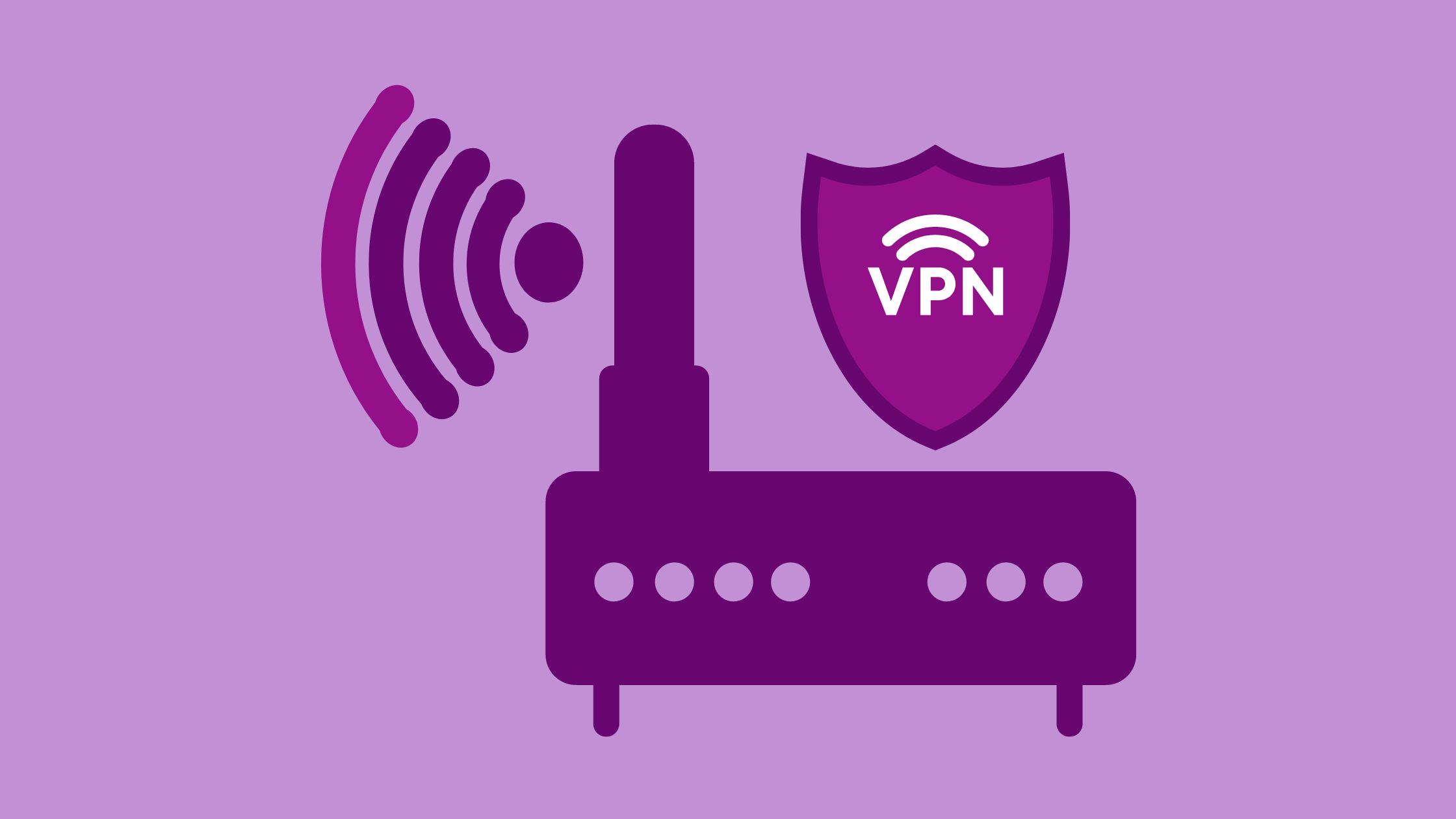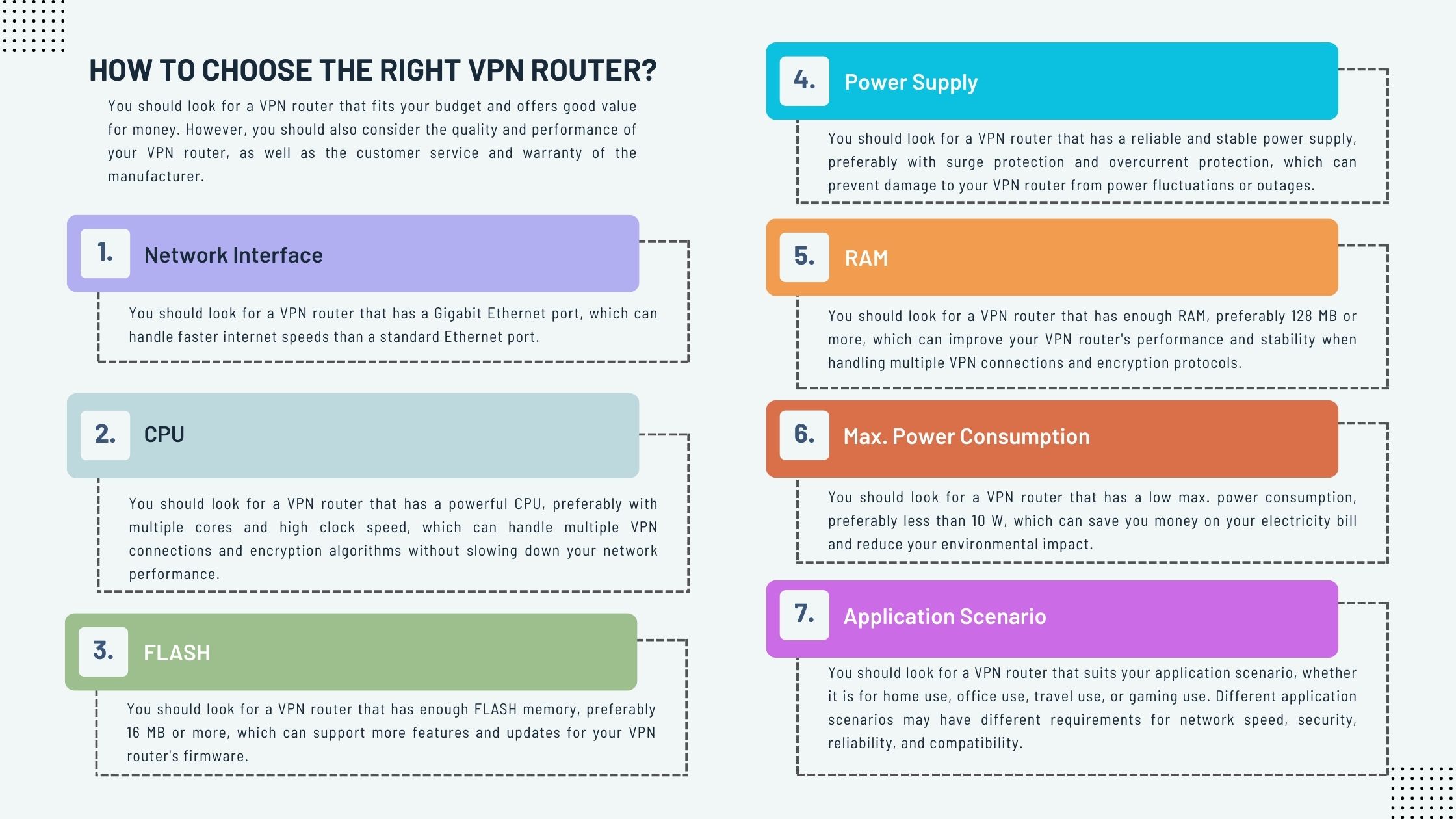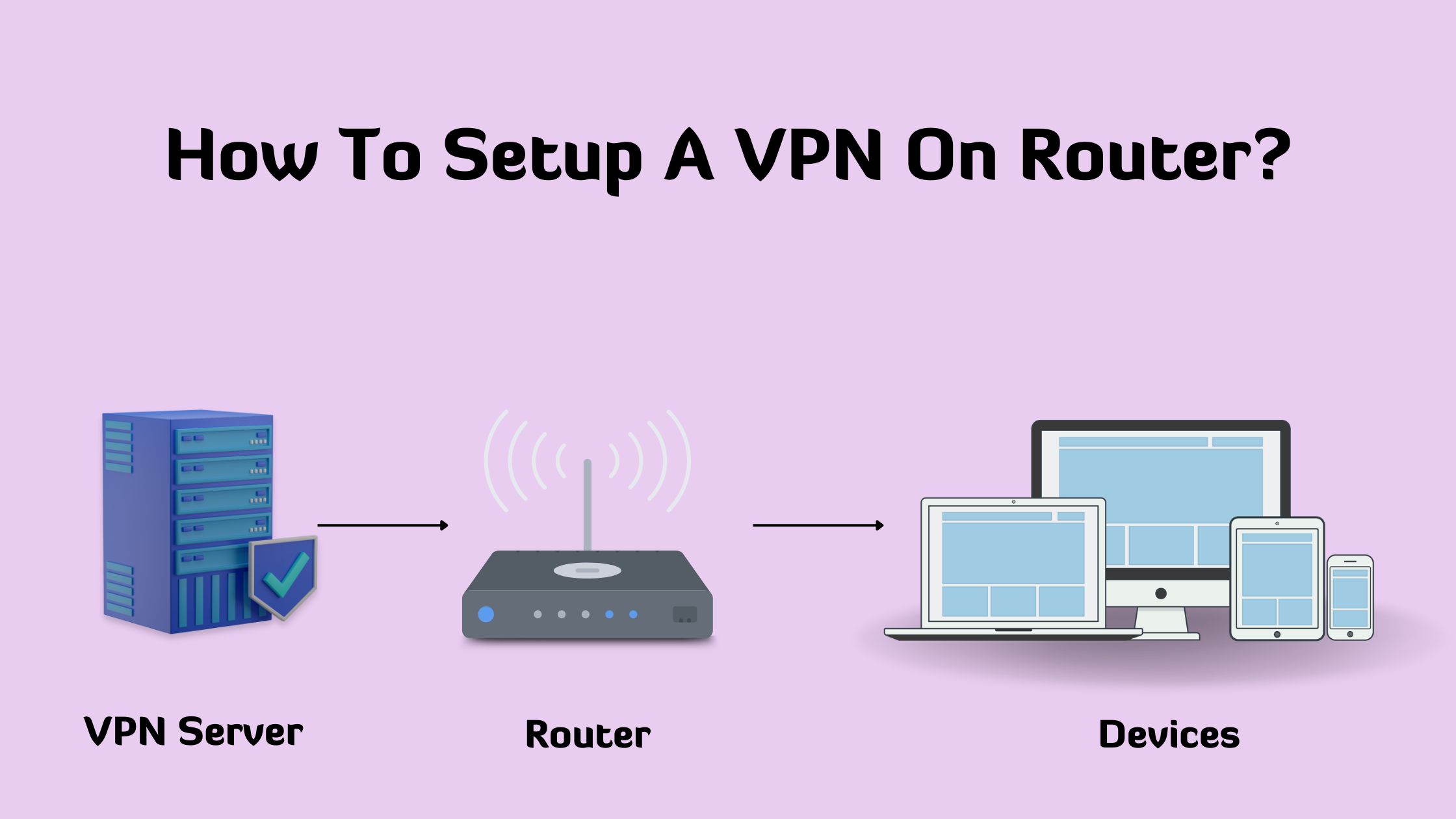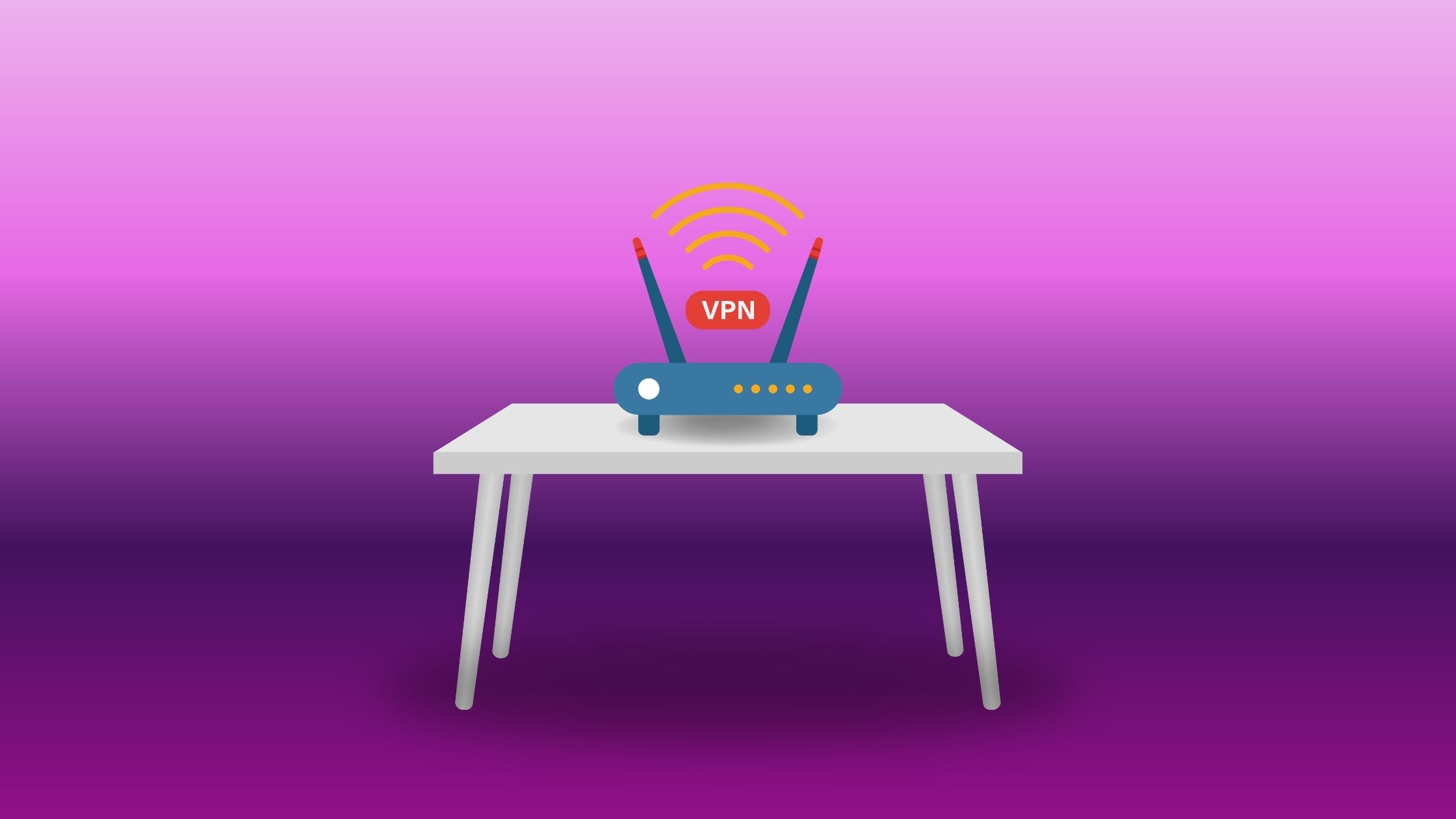Do you want your VPN to cover enough devices with one subscription like WiFi? Do you want to use your VPN on smart TV but don’t know how? Do you want to block your ISP from monitoring your data? Setup a VPN on router is the easiest and cheapest solution of all the problems above. Follow this article to get a brief guide on how to setup a VPN on router. This article will cover a brief explanation of what a VPN router is, how it works, if you need a different kind of VPN for it, and the advantages of setup a VPN Router.
What Is A VPN Router?
VPN stands for Virtual Private Network. It is an encrypted link between a network and a device via the internet. The encrypted connection aids the secure transmission of sensitive data. It permits unauthorized events to eavesdrop on the site visitors enabling faraway work for the users.
Your internet traffic passes through a tunnel that is encrypted as you connect to a secure VPN server and safeguards it from hackers, governments, or even your internet service provider. A VPN router is to connect the router to VPN and use it as you would use WiFi.
Setup a VPN on router requires a VPN that can be set up on the router. The VPN connection will then be shared by all devices that are connected to that VPN router. This way, you will now not want an app.

A VPN router secures numerous devices such as computers, cellphones, tablets, etc. simultaneously while a VPN connection to a device can only encrypt one device at a time. Additionally, a VPN router makes it simple to encrypt all the devices from a single source via a single connection. Families or homes with a range of internet-connected devices will find it to be the ideal solution. You can easily maintain your privacy and security by using a VPN router.
Should you Setup a VPN on Router?
A VPN router is a device that encrypts and routes all the traffic from your smart devices to a VPN server. This way, you can protect your privacy and security online, even for devices that do not support VPN software. However, not all routers are compatible with VPN services, and some may require more technical skills to set up. Here are some advantages and disadvantages of using a VPN on a router. Now you may want to know the advantages of setup a VPN on router. Let’s dive into it.
Advantages of setup a VPN Router
Connecting a VPN on individual devices can be tough. However, connecting a VPN to a router can be beneficial in many ways. When using the more advanced firmware of a VPN router, one of the key things is the degree of customization and control you have over your entire home network.
All of your WIFI and wired devices, including those that do not support a VPN, can be connected to the internet through a VPN using a VPN router. This implies that VPN encrypts all of your internet traffic and that the VPN server will appear to be where your whole network is actually located.
Additionally, your ISP will not be able to tell whether you are unblocking Netflix, torrenting, or playing online games on a console because they will only see encrypted packets.
You can keep your internet activities hidden from your ISP by using a VPN. Streaming and unblocking from websites such as Netflix are included in this. It is obvious that making encryption the default setting for all internet traffic will improve network security in overall performance. While the majority of services and websites encrypt data between your computer and its servers, not all do. As a result, even if the attacker cannot see what you are transmitting and receiving, they may still be able to determine which services you use. This weakness is frequently disregarded. The majority of people never think about the possibility that the used services can be the first bit of data an attacker seeks out.
Setup a VPN on router adds many many benefits to your household or office or even business internet connection. Purchasing individual VPNs for each person can be expensive and long work. This is why in a place with many people, it is wisest to use a VPN router or connect a router to VPN.
Protect Several Devices Simultaneously
Multiple devices can be connected simultaneously to a VPN router while being secured by an encrypted connection. Depending on your device and the intention to use it, you can connect VPN to the router through either a WIFI connection or an Ethernet connection. VPN routers for homes can offer everyone in your household safer internet browsing as they can tackle many devices at once.
High Convenience
After installing a VPN to a router you will not have to remember to log into your VPN and connect VPN to the router. Since you only need to input your login information once, you may connect to the internet on multiple devices instantly and enjoy safe browsing without having to constantly reconnect.
Outstanding Compatibility
Regardless of the operating system, you can connect to a wide range of devices with a VPN router. Many VPNs support macOS, Linux, iOS, Windows, and many more. You will not need to worry about if the subsequent gadget will function with the VPN router and thanks to this capacity!
Absolute Automated
You can connect to your VPN service more directly with the help of a VPN router. Since your VPN connection is automatically accessible once you are connected to the router, there is no need to give each device a unique password.
Secure External Devices
Despite being broadly used, many gadgets frequently no longer allow VPN use. An effective solution for these external devices is a VPN router. These include the XBOX, One, Playstation, Apple TV, Roku, PlayStation 4, and a few more. These gadgets and more can connect to the internet anonymously and securely using a VPN router.
Unblock Websites And Applications
A VPN router allows you to connect to the programs and material that you must be in a certain place to access freely. A different IP address can be used to make it appear as though you are connecting from a permitted area.
These are only a few of the benefits of setup a VPN on router. Setup a VPN on router also comes with a bunch of disadvantages as well. Such as described below.
Disadvantages Of VPN Router
As an amazing benefit, setup a VPN on router also has some disadvantages as well. Such as,
Risks Your Router’s Warranty
You must install third-party, compatible firmware such as DD-WRT or Tomato for your router to function with your VPN. However, doing so can result in the manufacturer’s warranty on your router being voided. The majority of the time, this is the case. So it is always important to first confirm with the maker of your router before moving on to connecting the router to VPN.
No The Easiest To Use
On a router setup, you will have to manually connect VPN to the router and will not be able to access all of the VPN’s features or change server locations as easily.
Complex Set Up
It could be challenging to set up. Setup a VPN on router can be challenging and dangerous. The majority of VPN services provide detailed setup guides for a number of router makes, models, and firmware. Even if you have some technical knowledge, it might still be a challenging endeavor. You risk your router “bricking” if the setup preset VPN routers for users who do not want to deal with the setup procedure by themselves.
Some Services Will Not Work
If your VPN is turned on, you can experience issues sending or receiving emails. For instance, SMTP port 25 may be blocked by your VPN provider to stop spam, or your email service may only let access from residential IP addresses. Online banking, streaming websites, Craigslist, Paypal, and government services may also be affected by your VPN. You will have to turn off the VPN router in order to use another online service, you have to turn off the VPN on your router, which is not ideal.
After this, it is also essential to choose the right VPN router. A very brief guide on choosing the right VPN has been described below.
How To Choose The Right VPN Router?
VPN router is best to use in households or business areas. In short, if you are intending to use it in an area with lots of people, it is always wise to use a VPN router. It not only saves money but provides various advantages as shown earlier. Choosing the right VPN router can be tough. However, these are a few of the things you need to check thoroughly. Such as,

- Network Interface
- CPU
- FLASH
- Power Supply
- RAM
- Max. Power Consumption
- Application Scenario
- Price
As you have reached this far, let’s see how to setup a VPN on router.
How To Setup A VPN On Router?

Setup VPN on router can be a bit tricky. Let’s see how you can connect the router to VPN easily.
- Go To VPN Router’s Firmware in a browser
- Enter the IP address in your browser’s address field.
- You will have to sign in with your router’s username and password
- Next, look for a setting for VPN or VPN service,
- Enable the VPN service
- Choose your Static or Dynamic DNS account
- Sign up for a free DDNS account
- Then return to VPN settings
- Install a VPN client on the devices
- Rename the new VPN network
- Connect to the VPN and you are done!
VPN router: worth it or not?
A VPN router can secure your whole network, but it takes more effort to setup than a VPN app on your laptop. You might think that Setup a VPN on router is too complicated if you’re used to easy apps or web-based VPNs. However, if you have many devices and value your home network’s privacy, this could be a good choice for you.



